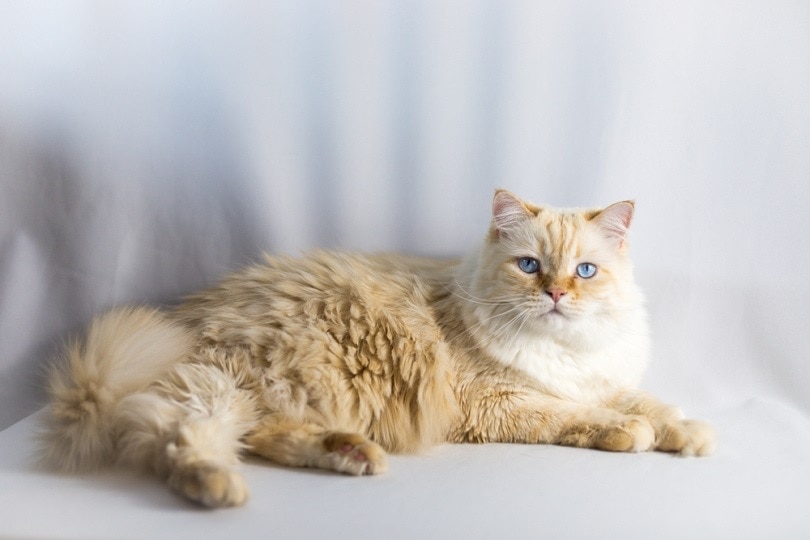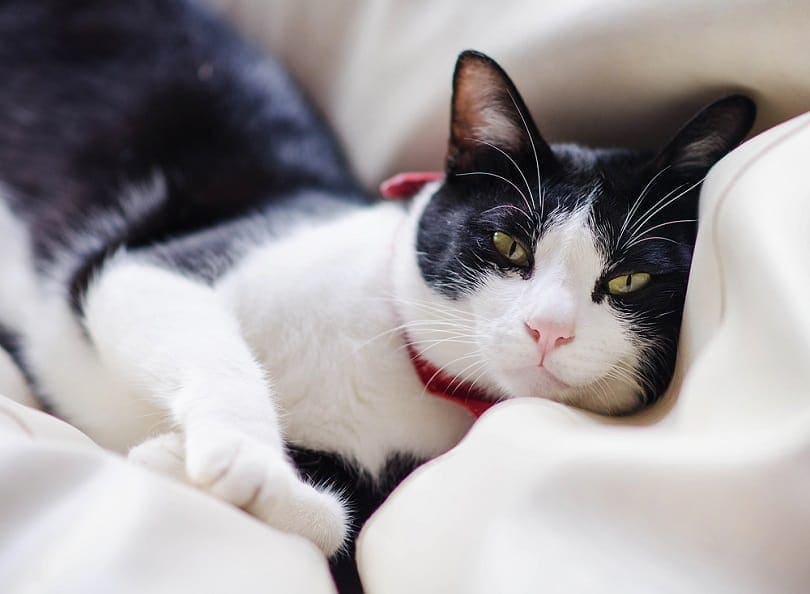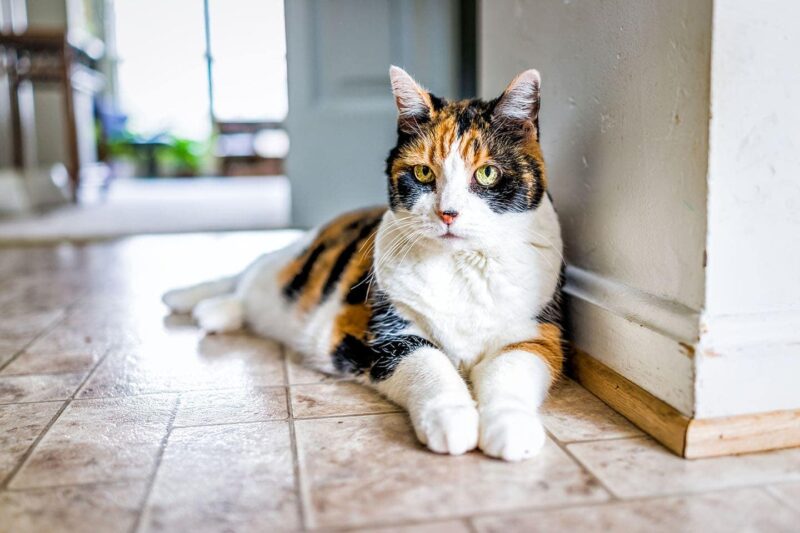My Cat Swallowed a Foreign Object: Vet-Approved Safety Guide

Updated on
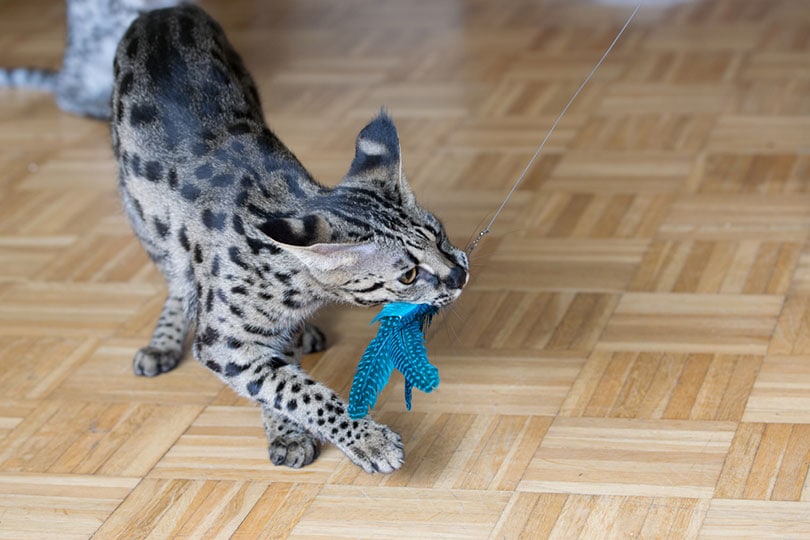
It can be extremely concerning if your cat has swallowed a foreign object. It is important to act quickly, as some objects can cause serious digestive problems or even get lodged and obstruct the digestive tract. Here’s what to do if you encounter this situation with your cat.
The 4 Things to Do if Your Cat Swallowed a Foreign Object
1. Seek Veterinary Advice Immediately
The first step is to seek veterinary advice. Even if your cat seems OK and the object appears small, you should still take them to the vet for a check-up. The vet will be able to determine whether the object has caused any internal damage and even, depending on the type of object, where it is located with the use of radiography or ultrasound. If your pet has swallowed a toxin or poison, immediately contact your veterinarian or the US Pet Poison Helpline (1-855-764-7661).

2. Monitor Signs
In some cases, getting your cat examined right away may be impossible or your vet may just recommend waiting to see if the object will pass on its own, depending on the type of object that is swallowed. If this is the case, monitor your cat closely for any changes in your cat’s behavior or appetite. It is also important to be on the lookout for signs of discomfort, such as drooling, vomiting, diarrhea, abnormal body posture, or lethargy. Keep track of your cat’s behavior and condition.
3. Wait for Treatment Instructions
Do not attempt to induce vomiting even if you think your cat ate a dangerous object or something poisonous. Some foreign objects can cause additional damage on their way back up. Your vet will let you know if inducing vomiting is necessary and ask you to bring your cat over to the clinic. On certain occasions your vet may have you feed your cat a high-fiber meal to help pass the object through the intestines without causing further harm.
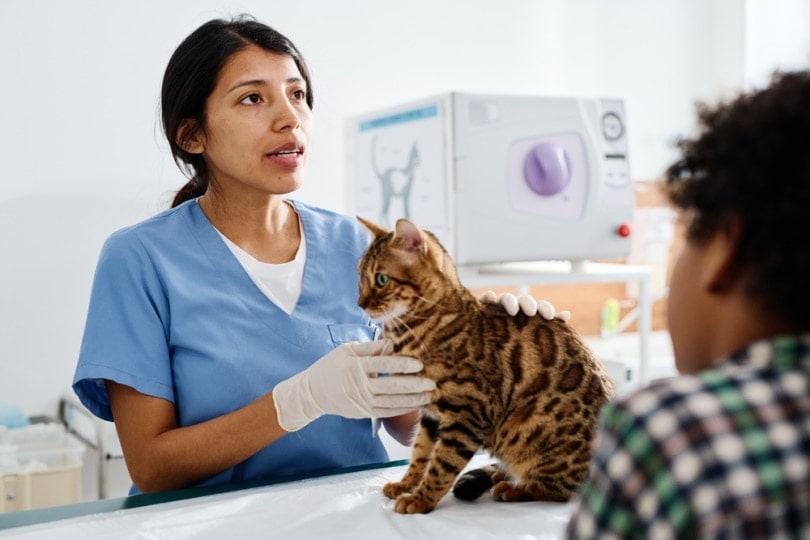
4. Provide Follow Up Care
It is important to follow any and all instructions given by your veterinarian. Depending on the severity of the situation, your pet may need to be monitored or given other treatments. Your vet may also recommend that you feed your cat a special diet and provide additional nutrients to help them recover.
The 10 Common Foreign Bodies That Are Dangerous to Cats If Ingested
It’s important to keep these away from your kitty at all costs!
1. String and Yarn
String or yarn can become easily tangled in a cat’s digestive tract, resulting in dangerous blockages. These are called linear foreign bodies and their consequences can be fatal. Signs may include vomiting, lethargy, decreased appetite, and abdominal pain. Treatment involves surgery to remove the string or yarn and to treat any damage to the organs.
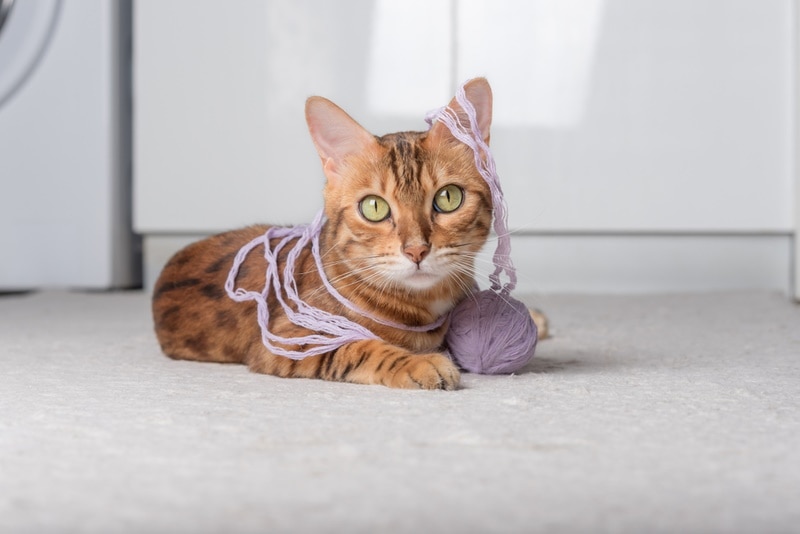
2. Hair Ties
Hair ties are small but dangerous objects when ingested by cats. Signs may include gagging, vomiting, loss of appetite, and lethargy. Treatment usually requires surgery to remove the hair tie from the stomach or intestines.
3. Batteries
Batteries contain caustic chemicals that can cause severe damage if swallowed by a cat. Signs include drooling, swelling around the mouth area, lethargy, lack of appetite, vomiting, and diarrhea. If you notice that your cat just ingested a battery, contact your vet immediately for advice. Treatment involves endoscopy or emergency surgery to remove the battery and treatment of complications if tissue damage occurs.
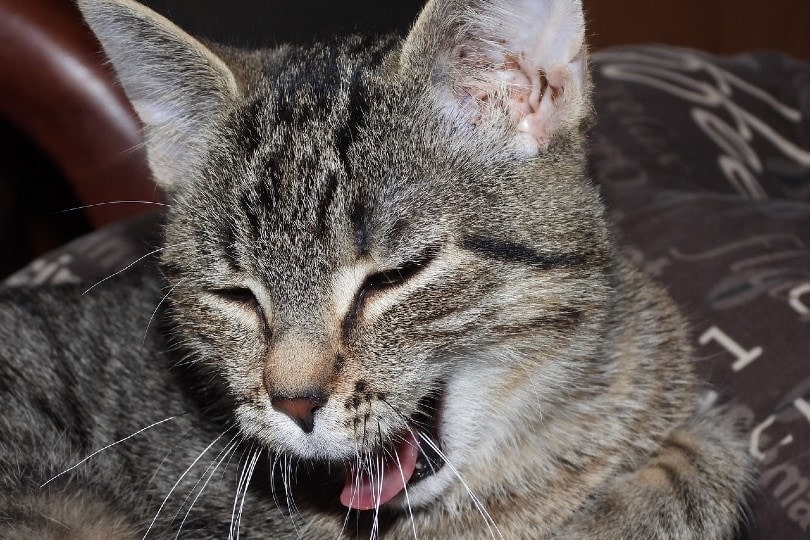
4. Needles
Ingested needles can be very harmful for cats, as they can puncture their intestines and stomach lining. Signs may include vomiting, lack of appetite, lethargy, and abdominal pain. Same as with batteries, needles can be seen on radiographs, making diagnosis quite straightforward. Treatment includes surgical removal of the needle and treatment of any damage the needle may have caused.
5. Coins
Coins are small but dangerous objects that cats may find attractive enough to swallow or chew on. Swallowing a coin can lead to poisoning if they contain zinc or digestive upset if made by other materials such as steel, nickel, copper, silver, bronze and aluminum. Digestive blockage and possible perforation of the intestinal wall are also possible although less common. Signs may include vomiting, diarrhea, decreased appetite, and abdominal pain. Your vet will provide you with a treatment plan depending on the type and number of coins ingested as well as where in your cat’s digestive tract the coin or coins are.

6. Small Toys
Toys that contain small parts or stuffing are hazardous to cats if ingested, as they can cause intestinal blockage or other serious damage to the digestive system. Signs include vomiting, decreased appetite, diarrhea, constipation and abdominal pain. Treatment may require surgery to remove the object from your cat’s stomach or intestines.
7. Buttons
Buttons are small objects that cats can easily swallow and become lodged in their stomach or intestines. Signs may include vomiting, loss of appetite, lethargy, and abdominal pain. Treatment involves endoscopy or surgical removal of the button from your cat’s gastrointestinal tract.
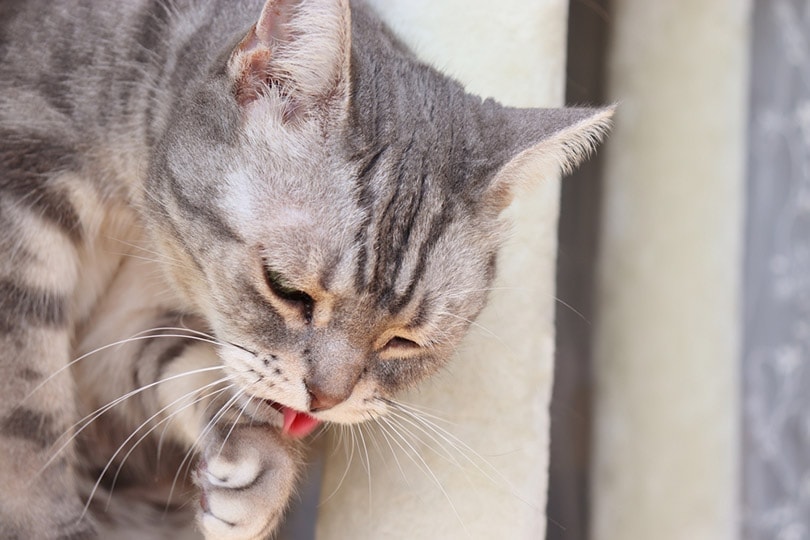
8. Nuts and Bolts
Nuts and bolts are dangerous for cats, as they can cause obstruction of the digestive tract. Signs of ingesting a button may include vomiting, decreased appetite, diarrhea, constipation, and abdominal pain. Treatment involves endoscopy or surgical removal of the object from your cat’s stomach or intestines.
9. Rocks
Rocks may seem like harmless objects to cats, but if ingested can cause serious damage to their internal organs. Signs may include gagging, regurgitation, vomiting, lethargy, loss of appetite, diarrhea, and abdominal pain. Treatment includes surgical removal of the rock from your cat’s stomach or intestines and supportive care as necessary.

10. Beads
Beads are another tiny object that can easily be swallowed by cats and become lodged in their digestive system. Signs may include vomiting, loss of appetite, lethargy, and abdominal pain. If the button isn’t small enough to pass on its own, treatment usually involves endoscopy or surgical removal of the bead from your cat’s gastrointestinal tract.
How to Keep Your Cat Safe From Foreign Body Ingestion and Poisoning
Prevention is often the best medicine. There’s no way to go back in time, but in the future, these tips can help your kitty keep things out of its mouth that don’t belong there.
- Use childproof locks and secure cabinets to keep cats away from potentially hazardous materials.
- Store all human medications, cleaning products, and other toxins in a safe place where your cat cannot access them.
- Do not use insecticides or other chemicals on your lawn or indoors without consulting with an expert first.
- Watch out for plants that are poisonous to cats, such as pothos, snake plants, and philodendrons, and avoid planting these in your garden or keeping them in the house.
- Be aware of items like string, rubber bands, needles, and thread that can pose a fatal threat if ingested by cats. Do not leave these items lying around and be sure to properly dispose of them.
- Provide toys and other items for cats to play with, as this can help prevent boredom and reduce the risk of accidental ingestion.
Conclusion
Accidents can happen, and knowing how to react in an emergency is critical. Ensure you have your veterinarian’s number handy, and don’t hesitate to contact them if you suspect your pet has ingested something toxic or hazardous. And don’t forget, keep all potential toxins and foreign bodies that your cat may be tempted to ingest out of reach and away from your pets!
Featured Image Credit: Katerina Mirus, Shutterstock



